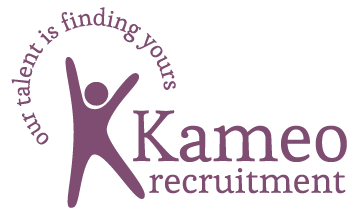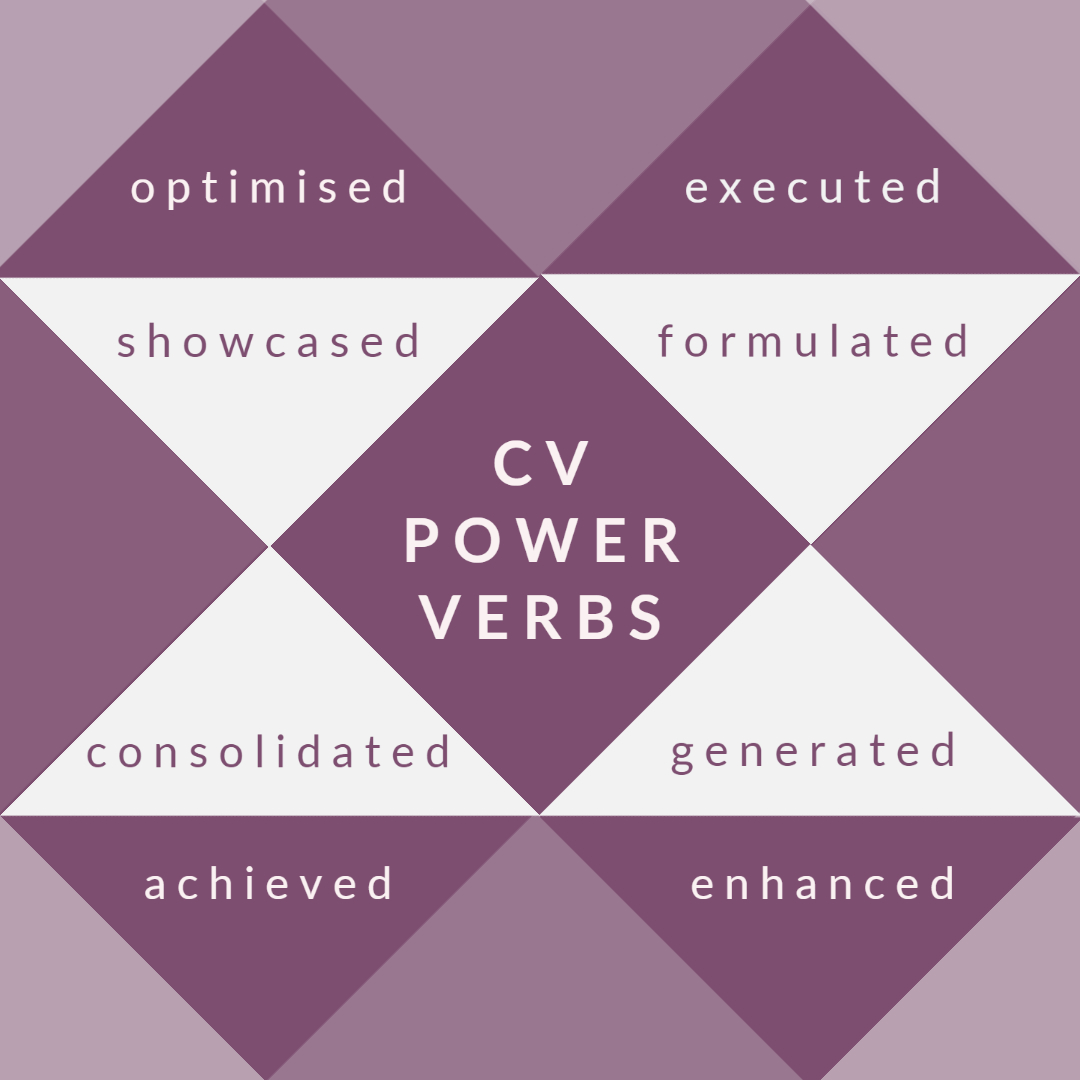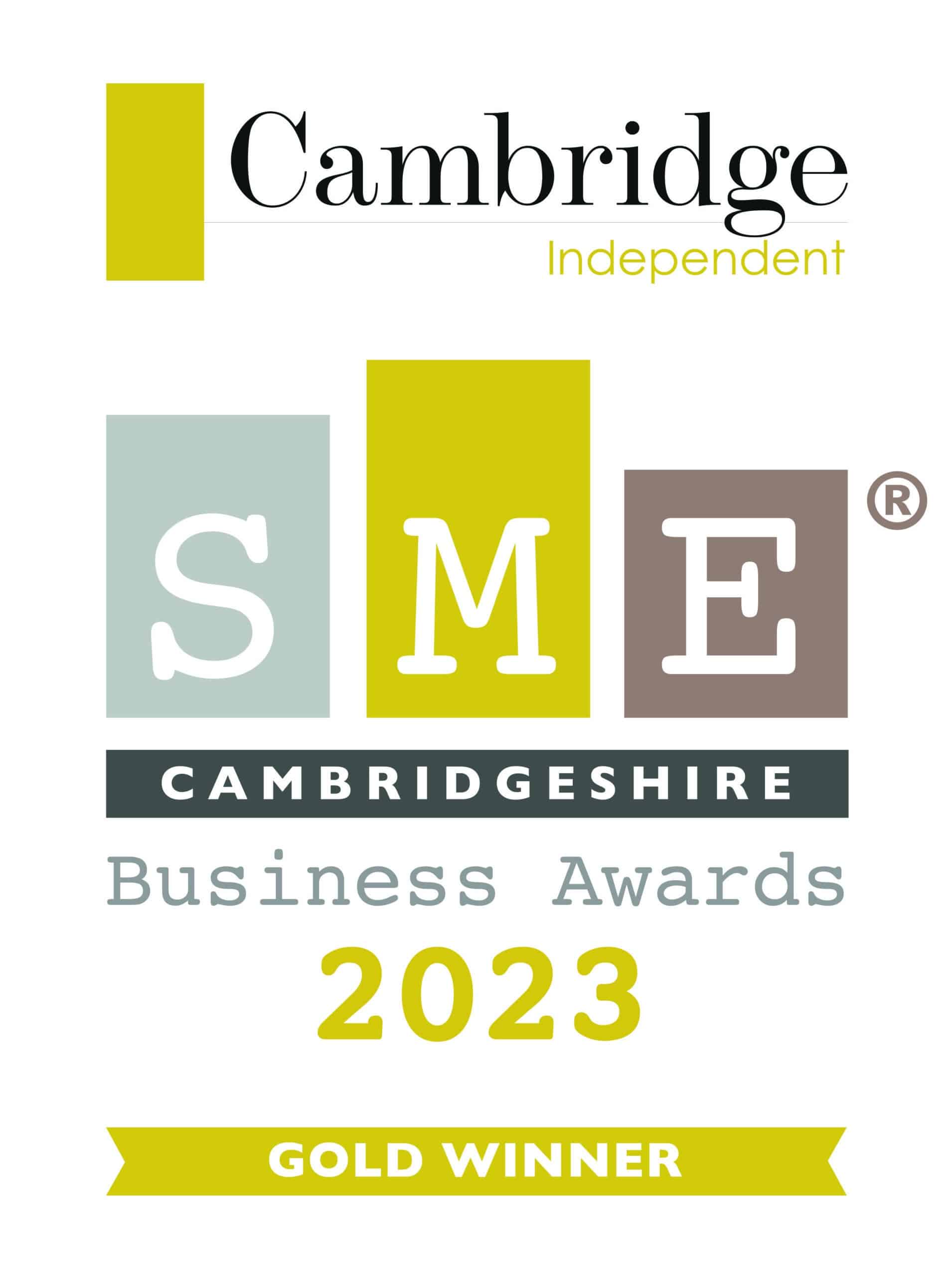Kameo’s News
Can we all agree starting a new job is a little daunting? The first 30 days are likely to whizz by and you might end up rounding off your first-month thinking: what exactly have I achieved or contributed here?
Fortunately, we love a how to guide here at Kameo and this month we’ll be exploring how to impress in your first 30 days.
Below you will find seven simple ways of impressing your employer in the first month…
Be on time:
Being on time showcases an excellent public perception, it confirms your reliability and highlights that you take your job seriously; punctuality is a skill required by all people irrespective of industry or profession. Turning up on time has personal benefits too, when we’re on time our stress levels are lower, and we will feel better prepared to handle whatever the working day has in store for us!
Get involved:
By getting involved and talking to your colleagues you are likely to meet people who share similar interests. Look for opportunities to showcase your personality e.g. during your lunch break, get involved in the sports or TV talk!
You were hired for your skills and cultural fit too! You don’t have to wear the ‘newbie’ badge, showcase who you are from the start.
Learn the names of your colleagues:
Getting to know your colleagues on a first name basis may make your new environment feel less alien, as well as enabling you the opportunity to begin forging friendly professional relationships.
Your colleagues will appreciate you taking the time to learn their names, it creates a good impression and suggests you care enough about the team you’re working in to put in the effort of learning their names.
We’re human and occasionally we forget things, one of those things, among learning the ropes of a new role, could be the name of a fellow colleague our top tip; jot the names of co-workers down and if you forget their name DO NOT delay in asking them again!
Be Enthusiastic
An upbeat, can-do attitude will never go down badly with your colleagues, in fact, they’ll probably warm to you quicker! So, wear a smile!
Fully embrace your induction or training period. Bear in mind your manager or colleague will have probably taken the time to put it together, so whilst nobody is expecting you to be an expert at the end of day one, they do want to see that you’re trying to understand and absorbing the knowledge being given to you. Don’t be afraid to ask questions, it is how we grow!
Show that you care about the company, the company values, and the role you are taking on! Try to begin understanding the needs of your team, what are their challenges and how does your role support their needs? Be a team player from the get-go.
Avoid a sick day:
Calling in sick at a new job does not make a good first impression. Obviously, sick days are sometimes necessary, and circumstances are different. So, if this is a genuine concern for you, make sure you are open and honest with your new employer. Always ensure you follow correct procedures when in need of time off. If there is a process to follow, then follow it, don’t just text your boss 5 minutes before you’re meant to be in telling them you’re not going to make it.
Ask for and accept feedback:
When you start a new job, you might not know how you are doing. You might worry that you aren’t meeting expectations, or you might feel uncertain about whether you are doing things in the right way. If in doubt, ask! Your boss will appreciate you asking questions as this will show that you are aiming to do your best and that you care about the results you are producing. You might ask which areas of your work you’re exceeding at, and which areas might need some more work, and how you could go about looking to improve. Speak to your manager and set goals that align with the goals of the organisation. And set out a plan for how best to accomplish these goals.
Soak it all up:
The best way to learn is to just jump right in! Ask questions, shadow your colleagues, take notes, absorb, and replicate. Make sure you clarify anything you are unsure on and observe your colleagues to find out about how they work, so you can see which methods you’d like to adopt.
Before finding my current role, I dreaded this question: – “Where do you see yourself in five years? “I always wanted to say something along the lines of; I see myself happy, I see my children well, I see world peace… but we all know what the interviewer really wants to know is “Do you have a career plan?” I honestly think it’s an archaic question that should have left the building with the only way to be successful is sitting at your desk 9 am-5 pm Monday – Friday. In this blog, we’ll look at the pros and cons of having a career plan, as well as the difference COVID-19 has made.
So here they are, the short and sweet pros & cons list. We’re sure there are more, but we don’t want to keep you all day…
Pros:
- Some say objectives are the cornerstone of success, with your career objectives in place you can reach greater success.
- It can help you identify an opportunity best suited to – your lifestyle, personal preferences, family environment, influences, and self-development.
- It can help you take responsibility for your weaknesses – it gives you the opportunity to look at where you can improve and set tasks to help you achieve this. Even the little things can make a big difference.
- Time flies and, before you know it, you have been in the same job for years and have not learnt any new skills. Having a plan allows you to put timescales in place and not get stuck in a rut.
- Knowing where you’d like to end up may just keep you in the driver’s seat, and avoid falling into a trap, or taking a huge side-step that has been influenced by managers/colleagues who aren’t (for obvious reasons) as invested in your career as you are.
- It will give you confidence as you will begin to recognise your strengths and weaknesses, decide on meaningful targets, and set plans to achieve them.
Cons:
- You can become fixated on your plan and miss other opportunities. Sometimes the best opportunities are the ones that are not planned. I speak from experience on this, I didn’t know what recruitment was until the summer after I finished university!
- It can create unnecessary anxiety if your timescales are off.
- It can put pressure on you if you haven’t achieved what you set out to do in a certain timescale.
- You may follow your path because you think you must or don’t know what other opportunities would be good for you.
- Setting goals outside of your limits, due to lack of knowledge of wanting to progress too quickly the result could lead to feeling like a failure when you do not meet your personal goals.
For good measure let’s throw COVID-19 in the mix, and ask ourselves this, do any of us really know where we see ourselves in five years time? How many of us started 2020 with far different ambitions than those we ended the year on? And in turn, how many of us altered our dreams, ambitions, and best intentions for 2021? The health pandemic we all find ourselves has created long-lasting changes to the way we all live, and work and I think an array of things will continue to evolve, our careers and plans included, long after most of us have been vaccinated and we can hug our friends again.
In a nutshell, I think an overview of how you’d like your career to go is important but to have a career plan that defines our every move and way of life, is likely to cause more harm than good. Often the fear of breaking away from made plans fills us with more anxiety than just seeing what the future holds and I say this as someone who considers themselves a planner! I plan in baby steps, what do I want to achieve this week? What are my goals? What can I try that’s new? Truthfully, the little steps I take lead me in the same direction as the big plan I could have spent several years altering and referring back to because when all is said and done our greatest asset is self-belief, and as long as you have that your career is always yours for the taking, wherever it may lead!
I’ll leave you with these lasting thoughts, never say no to an opportunity whether you succeed or fail you’ll learn something.
Is it a wonderful world, or a very bizarre world that we live in when we come across the role of Chicken Sexer? I’ll let you decide!
I’ll also let you answer, does this job really exist?
We are a team of passionate, and if I do say so myself talented recruitment consultants who can fill the most curious of job roles! Something we are all equally passionate about it discussing our candidate’s future aspirations, career milestones and prior career highlights. Between us we have 20 years recruitment experience, and, in that time, we have seen an array of jobs advertised which have certainly drawn a smile. But as the saying goes if the shoe fits…. to someone, they’ll be just perfect!
On a more serious note, when we’re living in a world where almost everything is online, to a scammer this is paradise. Scammers use sophisticated techniques which are consistently evolving and ready to take advantage of job seekers. So, how can you validate the authenticity of a job that you see on a job board?
- Research the job and company elsewhere, via Google or LinkedIn for example.
- Never pay money. Legitimate employers do not charge to hire you.
- Check the company’s references because references work both ways. Again, you could turn to LinkedIn for this and check to see if other people are listed as working there?
- If you are asked to provide your national insurance number, wire money or supply bank details before a job interview decline and cease contact immediately.
- Receiving a job offer via post? Our recommendation never send any bank details or email them to an unknown email address. Where possible this should always be done face to face, or through a secure and verified digital means.
- The salary details should be clear but if the potential employer is unwilling to discuss salary or an hourly rate approach with caution.
Without properly validating the position you are applying for you run the risk of exposing your personal details which could lead to identity theft.
At Kameo, we specialise in commercial/office, sales, HR, marketing, IT & engineering, and finance but the range of jobs out there got us thinking about how vast the recruitment sector is! It seems you can make an income doing just about anything so, we’ll leave you with this if you’re tired of your current position and are looking to move on, here are a few of the weird and wonderful positions that we came across…. remember to validate the role before you apply!
Chicken Sexer – It is a real job! In fact, in the farming industry, it’s crucial, and if not carried out correctly, will cut into the farm’s profits resulting in higher priced eggs and chicken. Next time you’re enjoying your eggs for breakfast, spare a thought for the Chicken Sexer!
Master Lego Builder – Wow, this must be a dream job for those people who grew up playing with Lego! This position was recently advertised to work at Birmingham’s Legoland Discovery Centre and is only one of 22 in the world. I would have applied myself but the Lego bumblebee I made with my son didn’t even make it into the Lego magazine!
Golf Ball Diver – I always wondered if the missing golf balls ever got recovered from the lakes – well, the answer is yes! Golf Ball Divers have to be certified, professional divers with training in first aid. They pay the Golf Club for every ball that they recover and then clean and sell them on to Golfers. Not a bad job if you like diving in murky water I guess!
Aeroplane Repossession Specialist – So I had heard of repossessing property and cars but never thought about aeroplanes. It’s not as easy as putting it in the back of a van and driving off, but the advantage is that you can’t hide it easily! Aeroplane Repossession Specialists research, track, repossess, fly and deliver aeroplanes. They are hired by the bank when payments are overdue. Not the ideal job for everyone and the main stipulation is that you can fly a plane!
Chocolate Taster – Oh yes, this must be high on most peoples’ dream job list! Mondelez International, the firm behind Oreo cookies and Cadbury snacks recently had four of these positions on offer. Key responsibilities included being able to taste chocolate and give honest and objective feedback. Along with using clearly defined vocabulary to describe products…..do you think “yum” would be acceptable?
In the world of recruitment, many of us will be working alongside our clients to work out an effective and safe way of interviewing for the foreseeable future and, with that, ignites conversations around well loved, tried and tested methods of hiring, such as psychometric testing!
Psychometric testing was introduced to the UK by Peter Saville, who developed the first psychometric test for the workplace in the late 70’s. Today, globally recognised organisations and public bodies still use psychometric tests as a recruitment tool which serves to test two qualities of the applicant. Firstly, their personality traits and, secondly, their work abilities. When used correctly, they can provide the recruiting panel with a fair and objective assessment of the candidates in the recruitment process. But how much research do we do before selecting a psychometric test to use? Do we evaluate what we are trying to achieve before we put them in front of our potential hires and how heavily should we be relying on the results?
This blog provides a brief overview of the to and fro discussion around psychometric testing, largely influenced by the 2018 People Management article is “Psychometric Testing still fit for purpose”.
Former Co-Operative Bank Chairman, Paul Flowers, supposedly secured his role, ahead of several other potentially better qualified candidates, because he did well in the psychometric tests. Does this suggest some businesses have become too reliant on psychometric tests? Are people overseeing potentially more effective means of selecting the right candidate for the job? Richard MacKinnon (occupational psychologist) said ‘“Psychometrics are only as good as the tool – and the hands using it…. They should never be used to make a decision, only to inform decision- making. But in less skilled hands, that’s what happens.”
They should come as part of the interview process and never be used in isolation. Some companies have introduced them to their existing employees as a means of better understand their employees, and, in turn, for their employees to better understand themselves, which could positively impact the way a business moves forward. As Kathryn Austin, Chief Executive and Marketing Officer at Pizza Hut, explains “psychometrics should be less about a one-time assessment and more about driving better behaviour and productivity”.
Data suggests more than 75 per cent of The Times Best Companies to Work For and 80 per cent of Fortune 500 firms use them (2017). In an executive level hire, OD Director of Total Produce, David Frost, found the science behind psychometric tests at this level of particular use. Having said that, interview panels need to be adequately trained on the psychometric test their organisation is using, as well as ensuring it is fit for purpose. Psychometric tests enable the interviewing panel to see beyond the qualifications, career history and S.T.A.R. Method. When used correctly, they enable hiring managers to see an individual’s basic instincts and attributes in black and white.
Used well, psychometric testing comes with numerous benefits including, but not limited to, maximising a company’s retention by better matching candidates to suitable jobs, avoiding the financial costs associated with poor recruitment decisions, better matching existing employees career aspirations with internal promotions/opportunities and enhancing the skill-set of your staff through psychometric development.
Volume recruitment can be a daunting and lengthy process. You may feel like you are sifting through a large number of applicants, trying to find the needle in the haystack whilst still trying to provide a positive candidate experience. Covid-19 has slightly tipped the scales in terms of being a candidate -driven market and, with so many now unemployed due to the devastating economic effects of COVID-19, will we see a rise in the number of businesses using psychometric tests as a means of identifying the right person for the job? A 2020 survey by the society for Human Resource Management estimates that, at present, 18% of companies use psychometric testing in the hiring process. It was also found that this percentage of users is growing at a rate of 10-15% per year.
At Executive level, psychometric tests are likely to be used later in the recruitment process. For volume roles, assessment centres, graduate schemes and so on, a psychometric test might be the first stage of the process used as a filtering mechanism for the hiring company. At this level they should be used to gauge a candidate’s future potential.
The company issuing the psychometric test should consider the variety of psychometric test they’re using. For example, professional services firms such as KPMG and Deloitte are using gamified versions of psychometric testing at graduate and apprenticeship level. Psychologist, Thomas Chamorro Premuzic, said ‘gamification brings several advantages, including the ability to scale and open up the candidate pool, which could lead to increased diversity”.
On balance, psychometric testing is regarded as a successful tool to aid recruitment and employee development amongst several well-known brands and companies the world over. However, approach with caution and curiosity. Understand why your business is using them, do your research and ensure you are properly able to evaluate the results, ensuring a fair hire is made based on all the evidence at hand.
According to research carried out by The Ladders.com in 2012, the average time spent reading a CV was just 6.25 seconds – whilst this might seem unfair it’s clear to see you have a very short window of opportunity to make that initial impression!
Here is a short document on things you might want to consider which may improve your chances of being selected for interview.
- Consider the length of your CV, 1-2 pages is ideal but if you have an extensive career history and or some impressive notable achievements you can (just about) get away with 3 pages. If your CV is longer than 3 pages and you are struggling to fine-tune please get in touch with us, we are happy to assist.
- Is your LinkedIn profile up to date? Yes – use this as a tool, include a link to your LinkedIn at the top of your CV & add all those things you want to discuss on your CV there. No – we recommend your update it, with or without the link if you’re on there chances are your future manager will be looking at you. Research carried out by the The Ladders.com in June 2019 suggests, over 70% of employers check social media profiles of candidates to learn more about them.
- Power Verbs, what are they? And how can I use them in my CV?
Power Verbs are action words which have a strong meaning in the English language, often used to strengthen your CV and convey confidence. We’ve got a list of Power Verbs (see below), use as a check list – how many do you have in your CV? If you have the same or similar that’s fantastic if you’ve lucked out add them in 😊 We have tailored power verbs for each industry we recruit within, please get in touch if you would like yours!
- Content aside, are you proud of how your CV is formatted? Let’s make it easy for our CV readers to pick out the best bits. Personal details? Of course, they are important, but you don’t need a photo. Centralise your personal information and place at the top of your CV in bold. Ensure your CV is in chronological order, current or most recent place of work / work experience first please. Please tell us how brilliant you are but do it concisely, a few sentences or short paragraph will do the trick. Let’s talk about margins, try and set your margins at one inch on all sides to create a well-balanced design.
Other things to consider.
- Is the font the same throughout?
- Bullet points – either include or don’t include full stops avoid doing both
Want to know more about creating the perfect CV? We’re always happy to help but if you want a reference guide to help you too you might find the following books useful;
- Be You, Get Noticed, Get Hired, Graduate CV (Susan Burke, 2015)
- The 7 Second CV – How to Land the Interview (James Reed, 2019)
- HR Resume Secrets – (Alan Collins, 2014)
- The CV book – your definitive guide to writing the perfect CV (James Inns, 2012)
“Stay in your Lane”
This exceptional piece of advice was given to Sharon when she first established Kameo. Fast forward 20 months and we, especially Sharon, are so proud of how far we’ve come and all the great things 2020 already has in store for us. As we find ourselves in the final days of the first month of the year we’re reflecting on what staying in your lane means to us and we came up with the following….
Don’t lose your way comparing yourself to others, it’s demotivating, disheartening and damages your spirit. We live in a world fixated on comparison; comparison of ourselves, belongings, partners, physical appearances, work ethic, careers but what happens when we stop comparing? We begin to see the value in the amazing things we’re doing, we fall in love with our own concepts and ideas but above all else we have the ability to recognise that what we’re doing is adding something great to the world. Albeit sometimes similar, is equally very different to what anyone else has to offer.
Make 2020 the year you become the well-wisher and the go-getter. The year you recognise that you can do something amazing without doing everything. Stay happy by staying in your lane.
“Your work is going to fill a large part of your life, and the only way to be truly satisfied is to do what you believe is great work. And the only way to do great work is to love what you do. If you haven’t found that yet, keep looking, and don’t settle. As with all matters of the heart, you’ll know when you find it”. – Steve Jobs
In 2019 un-employment is at an all-time low in the UK. The competition is fierce, and the job market is fast-paced and ever evolving, today more than ever; job satisfaction, feeling valued, respected and above all else happy in the workplace take precedent over the old-fashioned favourite money, money, money! All things considered it is not surprising to hear people are no longer staying with their employer for the entirety of their career, as a country we are more open to opportunities and growth than ever before. Kameo Recruitment have been asking around to gauge a better understanding of what Cambridge’s employees are looking for in their next employer and here’s what we found….
“I am looking for an innovative and forward-thinking business that I have a personal interest in. Culture is key. A business that trusts and gives you autonomy. There is also a strong sense of team and you work together to reach a ‘common goal’ – Marketing Executive
“Flexible working and the ability to work from home is a big factor. Plenty of opportunity to grow and develop within the company. I would love to work somewhere that provides a benefit to others.” – Editorial Projector Manager
“I am looking for a collaborative company where people’s views and opinions are respected, along with the opportunity to grow and develop. I’d also like to work for a business who have a great social ethos and a drive to further their employees” – Office Manager
The 2018 Global Talent Trends study by Mercer discovered three things potential employees are looking for moving forward; permanent workplace flexibility, a commitment to health and well-being and working with a purpose. This is synonymous with our Cambridge employees who each stated their future employer needs to hold at least one of those attributes.
Kameo recently attended a breakfast seminar on Corporate Social Responsibility which opened our eyes to some staggering statistics which suggest how highly valued CSR is to individuals. Although the business practice is still evolving, it is already widely accepted and deemed necessary by many employees working in today’s socially conscious world and as such should no longer be an option to an employer.



Overall it would appear employees are looking for benefits beyond the basics. Supplementing a salary by assisting in other areas of an employee’s life is not going to be turned down, but with every other employer offering those things today’s employees are looking for an employer who genuinely cares. One who offers personal touches that say; “we’re a business who is going the extra mile not only for our staff but our community and world around us”.
Sources;
(Forbes “What Employees Really Want At Work” July 2018).
(Office For National Statistics, July 2019)














